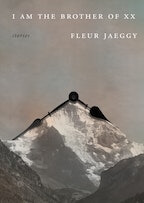As part of The A.V. Club’s best of the 2010s coverage, we asked some of our favorite authors to share their 10 favorite books of the decade. Next up is Patty Yumi Cottrell. Cottrell’s novel, Sorry To Disrupt The Peace, published by McSweeney’s in 2017, follows 32-year-old Helen as she learns of her adoptive brother’s suicide, then returns to her hometown of Milwaukee to “investigate.” A surreal comic tension runs throughout, with the reader understanding more about the narrator’s strange, pushed-to-the-edge behavior than she does. In an interview with The Paris Review, Cottrell characterizes the work of Jane Bowles, one of her influences, as “curdled realism,” which perfectly describes the tilted tone and perspective of Sorry To Disrupt The Peace as well. The novel, for which Cottrell won a Whiting Award in 2018, is unsettling and sad and uncomfortably funny, and it was one of our favorite books of the decade. Here are, in her own words, Cottrell’s 10 favorite books of the 2010s.
McGlue by Ottessa Moshfegh (2014, Fence)
This book is not really a book; it’s a prayer and a miracle. Ottessa Moshfegh is a conjurer of the highest order, and McGlue, a short novel about a person named McGlue who might be a murderer, makes me feel in love with the world, and so grateful to be alive.
I’ve admired the work of Bill Callahan since the early 2000s when I bought Red Apple Falls in a record store in Minneapolis because I liked the cover (pale blue, matte, cathedral). A series of prose poem-like sketches, sometimes akin to comedic koans, about what it’s like to live alone, to love boxing, and to try (and fail) to communicate with a woman. Also, it has great one-liners: “Everything I’ve done today could have been done by a bear.”
Nox by Anne Carson (2010, New Directions)
I read Nox when it came out, a few years before my brother died. I didn’t understand it, but I appreciated it as an art object. After my brother committed suicide, this was the only book I could stand to look at for a year. A fugue, a mystery, an abyss. Language fractures and heals.
The stories in this collection are logical, puzzling, strange, and emotional. When I read the standout story “is your blood as red as this” I felt like a child hidden underneath a heap of blankets with a book and a flashlight, long past bedtime. Actually, I used to read in the bathroom past my bedtime; the light was better in the bathroom. The magic of Oyeyemi’s storytelling evokes that feeling.
In The Distance by Hernan Diaz (2017, Coffee House Press)
Immigration, loneliness, the West, abandonment, death. One of the most depressing books I have ever read. It was a brutal reading experience so I read it in small doses. Very small doses. I cried at the end. And I never cry, but this book made me cry. Upon finishing it, one realizes the immensity of Hernan Diaz’s accomplishment.
Binary Star by Sarah Gerard (2015, Two Dollar Radio)
I’ve heard rumors that Binary Star has helped writers I admire get through bouts of writer’s block. It’s heavy, blunt, strong, graphic. The sentences are bricklike and terrifying. Binary Star might be my favorite psychological horror novel of all time. Full disclosure: Sarah Gerard is my favorite human of all time.
A Greater Music by Bae Suah (trans. by Deborah Smith, 2016, Open Letter)
A Korean writer attempts to learn German, falls in love, ends a relationship, hates parties, has financial difficulties, takes walks, loves her solitude, nearly drowns, thinks about classical music, thinks about thinking and so on in this clear-eyed and brilliant novel.
Problems by Jade Sharma (2016, Coffee House Press)
I emailed Jade Sharma a long time ago because I loved her book. It’s nice to tell writers you admire that you like their books. We became friends. I miss my friend. I’ve recommended Problems to every person I know. Everyone loves it, admires it, thinks it’s funny and perfect. It’s easily the funniest book I’ve ever read about loneliness, drugs, and sex work.
I could tell you what this novel is about, but instead I’ll admit I was lucky to encounter A Cure For Suicide when I was confused by my life. So often I am confused. So often I am lucky enough to encounter books not beforehand or after, but at exactly the moment I need them.
I Am The Brother of XX by Fleur Jaeggy (trans. by Gini Alhadeff, 2017, New Directions)
Every time I read Fleur Jaeggy, I feel compelled to imitate her. One shouldn’t try. Sometimes I try. And I always hate what I end up with. When I return to her stories, I feel relief. Her work is finely textured and cruel and meticulous. There is an absence of love in her writing. I mean to say her work is graceful. One could live for a long time in her stories if one wanted to. But I wouldn’t recommend it.









































